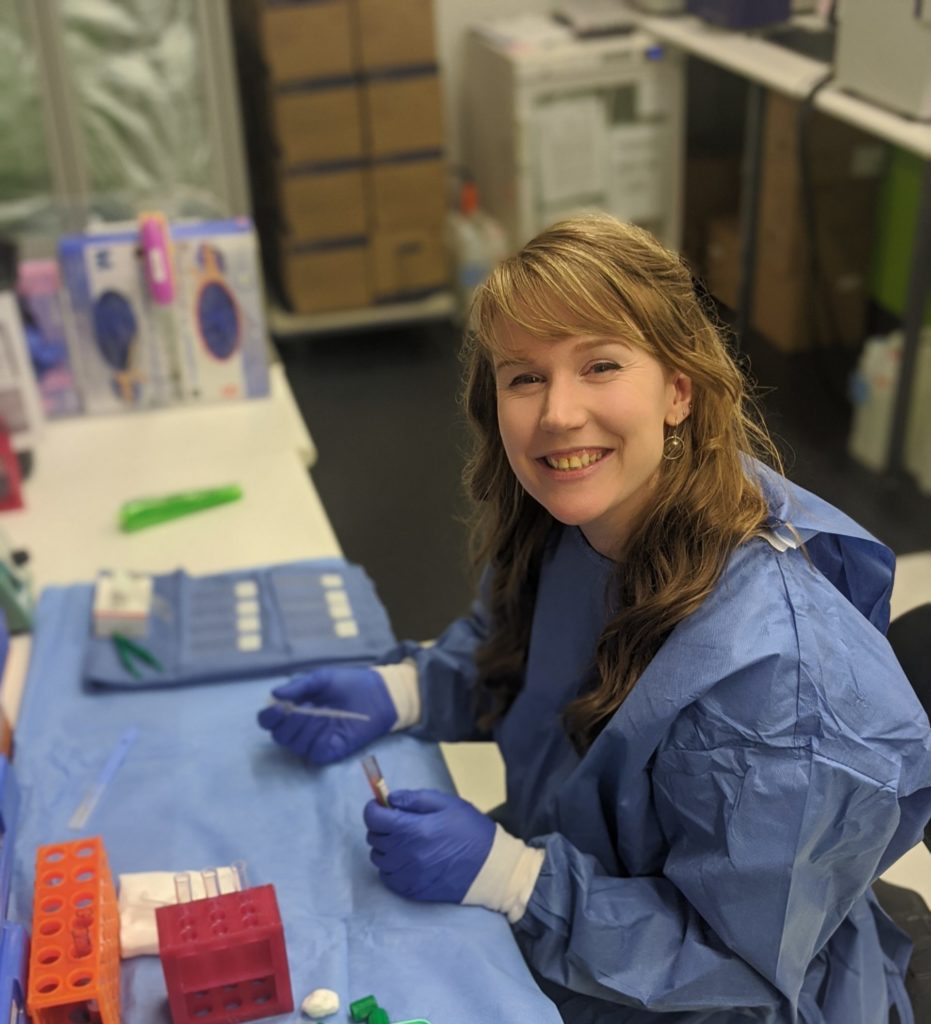Getting under the skin of T-cell disorders

New research on the frontiers of T-cell biology and better treatments for T-cell mediated disorders
Our body’s T-cells normally help survey for cancer and protect us from infection, but sometimes these cells develop abnormalities and instead go on the attack – against our own skin.
Cutaneous T-cell lymphomas (CTCL) and skin graft versus host disease (sGVHD) are difficult to treat disorders, but Dr Jessica Elliott’s research aims to better understand the malignant and allo-aggressive T-cell biology of these disorders and how T-cell modulating therapies may alter that immunology.
Dr Elliott is leading the research after recently publishing a review of outcomes in CTCL across four Australian transplant centres and says, “CTCL is among the most poorly understood and difficult to manage haematologic malignancies”. Dr Elliott has a research interest in immunohaematology and T-cell biology, in particular the intersection of T-cell disorders with T-cell therapeutics.
“While there’s an emerging body of research investigating T-cell modulating therapies for B-cell leukaemia and lymphoma, there are still many unanswered questions when it comes to the application of these emerging therapies to T-cell mediated disorders — the so-called ‘T-cell versus T-cell’ therapies,” she said.
An allogeneic stem cell transplant is currently the only available treatment with curative potential for CTCL. However, patients face a significant risk of transplant-associated complications, most notably the risk of life-threatening GVHD. The factors associated with favourable and adverse transplant outcomes are poorly understood.
While the disease biology underlying CTCL (malignant T-cell immune escape) and skin GVHD (allo-aggressive T cells) may be considered polar opposite, some T-cell modulating therapies can be used to treat both conditions. A form of light therapy called extracorporeal photopheresis (ECP) has been effectively used in the treatment of both CTCL and skin GVHD. However, the process by which ECP works in these divergent conditions is not well understood, nor the mechanisms driving treatment response and resistance.
Dr Elliott’s research will investigate how allogeneic stem cell transplantation and ECP alter the immunology of malignant and allo-aggressive T-cells in CTCL and skin GVHD, and aims to contribute to improving and optimising treatments to help more people survive these T-cell mediated disorders.
The research will be based at the Australian Cancer Research Facility (ACRF) Translational Research Laboratory under the supervision of Prof. David Ritchie, A/Prof. Rachel Koldej, and A/Prof. Amit Khot using registry data, longitudinal patient samples, novel disease models, and state-of-the-art analysis platforms.
It is hoped that Dr Elliott’s work at the Royal Melbourne Hospital and Peter MacCallum Cancer Centre will more broadly improve the understanding of T-cell biology, eventually translating into better treatments for disorders brought about by abnormal T-cells.
Dr Elliott’s PhD scholarship, called T-cell versus T-cell biology: mechanisms and modulation of disease and therapy, is funded by the Leukaemia Foundation and the Haematology Society of Australia and New Zealand (HSANZ).
About Jessica Elliott
Dr Jessica Elliott achieved her Bachelor of Medicine & Surgery and Bachelor of Medical Sciences, both with Honours, at Monash University (Victoria).
After four years at The Alfred Hospital, where she did her internship and basic training, she has spent the last four years as a clinical and laboratory haematology registrar at Royal Melbourne Hospital/Peter MacCallum Cancer Centre.
Here she has been exposed to state-of-the-art haematology in a patient-oriented, education-focused and research-driven environment. In 2023, she completes her advanced training in haematology and also begins her PhD at the Australian Cancer Research Facility (ACRF) Translational Research Laboratory.
Last updated on April 13th, 2023
Developed by the Leukaemia Foundation in consultation with people living with a blood cancer, Leukaemia Foundation support staff, haematology nursing staff and/or Australian clinical haematologists. This content is provided for information purposes only and we urge you to always seek advice from a registered health care professional for diagnosis, treatment and answers to your medical questions, including the suitability of a particular therapy, service, product or treatment in your circumstances. The Leukaemia Foundation shall not bear any liability for any person relying on the materials contained on this website.